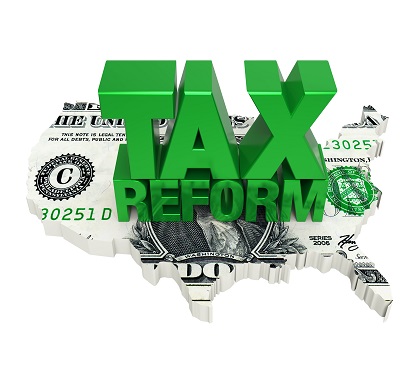Problem
Because the 2017 Tax Cuts and Jobs Act reduced deductions for state and local taxes, many states have reformed their tax codes so residents do not pay higher taxes. Currently, Louisiana is considering reforms to its code to decrease the tax burden for Pelican State residents.
Louisiana currently ranks 44th in the Tax Foundation’s 2019 State Business Tax Climate Index, a study that compares states across several tax benchmarks. Louisiana ranks lower than many of its neighbors, including Texas (15th), Oklahoma (26th), and Mississippi (33rd).
Moreover, from July 2017 to July 2018, 10,840 residents left the state, and Louisiana’s burdensome taxes most likely contributed to the exodus.
For Louisiana to remain competitive, it must reform its tax code to encourage investment and economic growth.
Policy Solution
Several states have passed conformity laws as a springboard for tax reform through tax relief and rate reductions. In Louisiana, three bills have been introduced that would replace the current individual income tax system with a flat tax of about 4 percent.
Under the current system, Louisiana employs a so-called “progressive tax system” that includes three brackets (2 percent, 4 percent, and 6 percent). As one’s income increases, so does his or her tax burden.
All three bills propose replacing the current progressive system with a flat tax rate between 3.95 percent and 4.15 percent. All three would also end the deduction for federal income taxes paid, because it ties the state budget too closely to federal tax code changes.
The biggest difference among the bills is how they address potential state revenue losses created by the change to a flat tax.
The first bill, House Bill 191, would impose a 4 percent flat tax on income greater than $12,500. It would also end most deductions.
The second bill, House Bill 260, would create a 3.95 percent flat tax, end several deductions, and create new limits on itemized deductions to charitable contributions and mortgage interest.
The third bill, House Bill 416, would establish a 4.15 percent flat tax on all income. This proposal would include a standard deduction of $12,500 for single filers and $25,000 for families.
According to the Illinois Policy Institute, states without a progressive income tax have grown 5.9 percent faster than the national average. States with a progressive income tax have grown 2.4 percent slower than the national average.
Policy Message
Flat taxes are beneficial for several reasons:
Point 1: They do not penalize the most productive citizens who create the majority of jobs and generate significant economic activity with higher tax rates.
Point 2: Flat taxes simplify the tax code by eliminating most exemptions and deductions. Taxpayers will no longer need to hire expensive tax accountants or use costly computer programs to file their state taxes.
Point 3: Under a flat tax, those who earn higher incomes pay more in taxes, achieving the very “social justice” progressive tax proponents claim to seek.
Point 4: Tax revenues are much less predictable under progressive tax systems compared to flat tax models, making budgeting more difficult.
Point 5: Relying on a small percentage of higher-income taxpayers for a larger percentage of revenues generates revenue windfalls and spending free-for-alls during economic booms, followed by massive budget gaps during economic recessions.
Point 6: Economic growth has been more robust in non-progressive tax states than progressive tax states.




